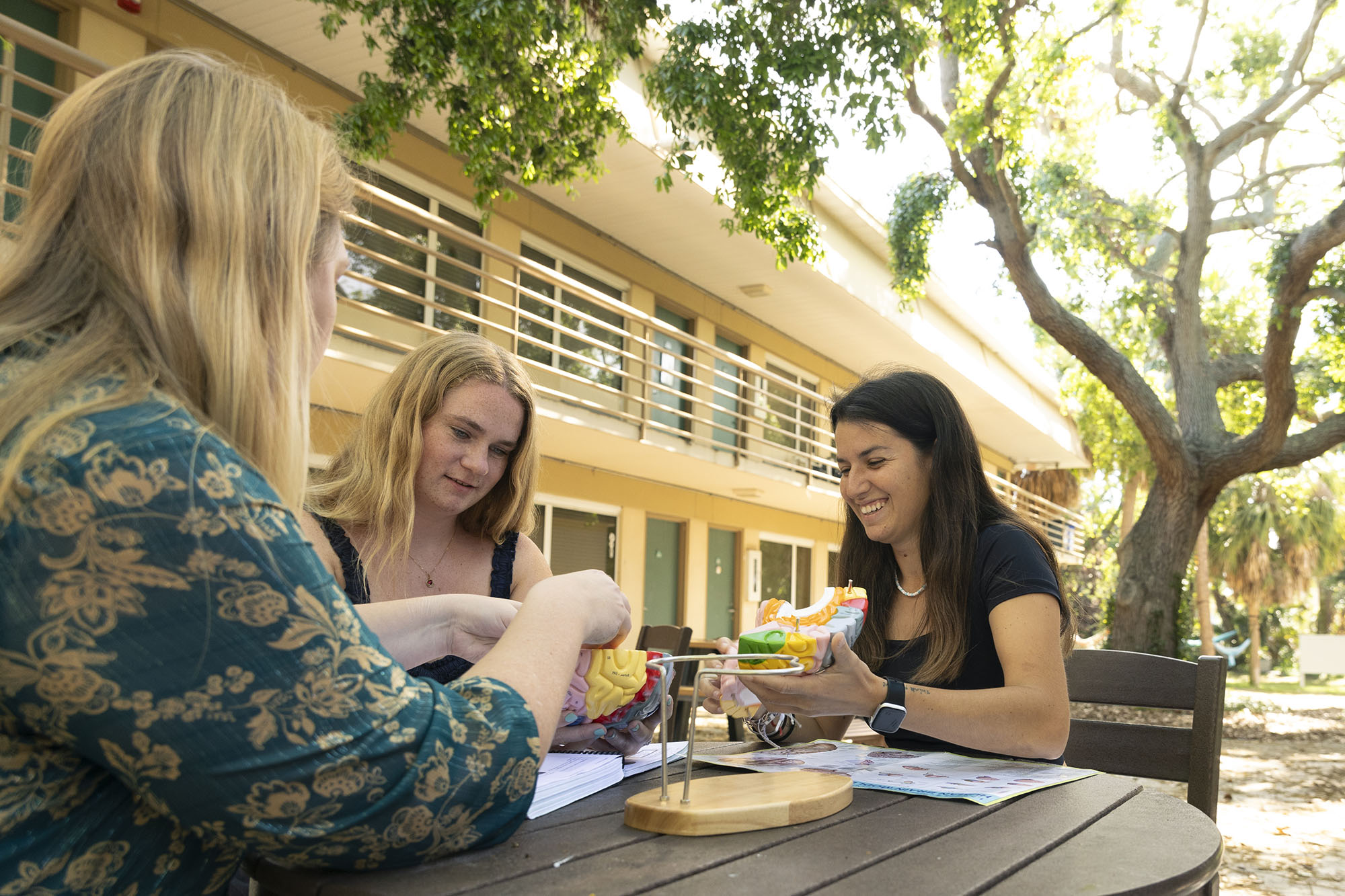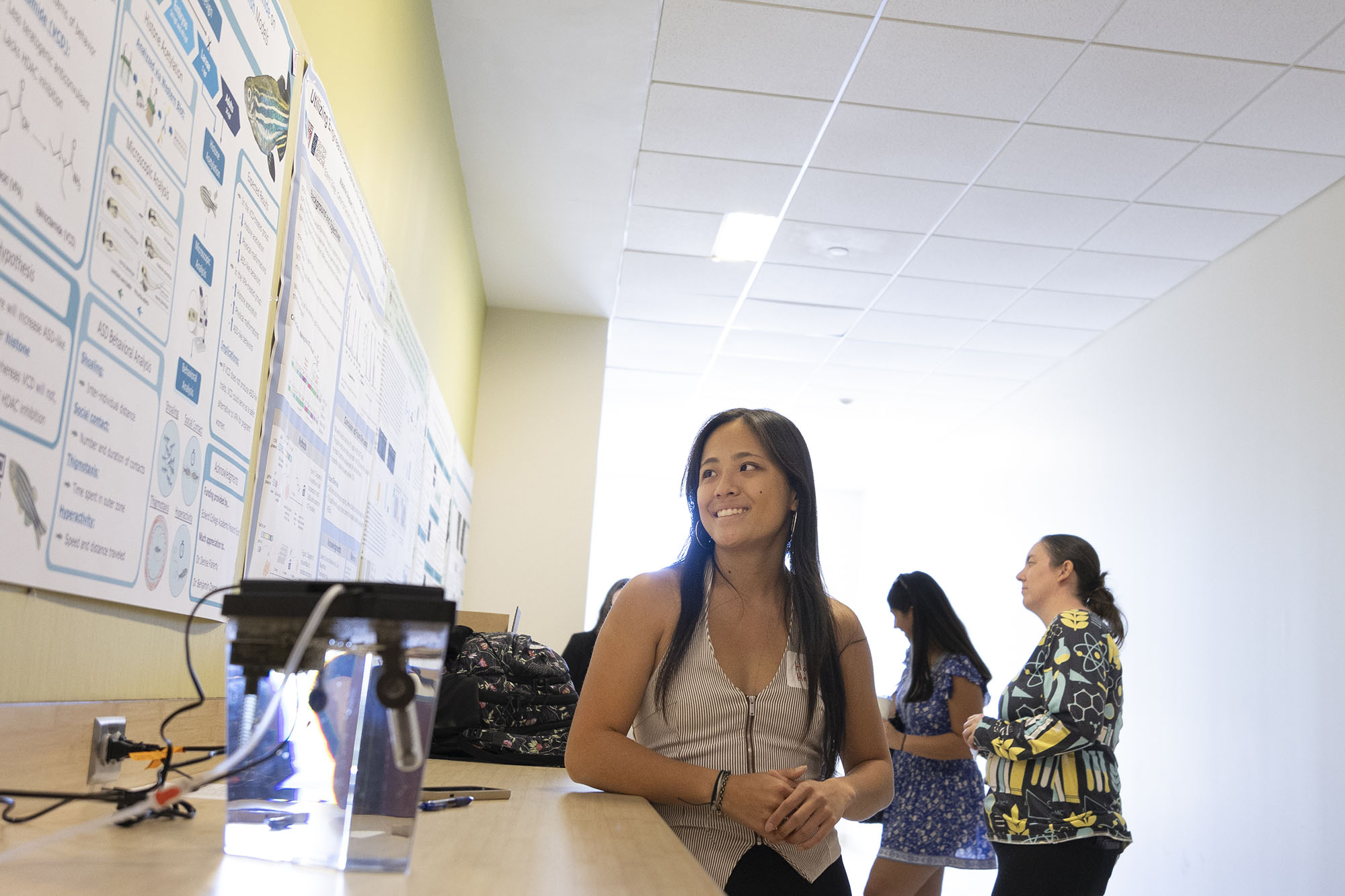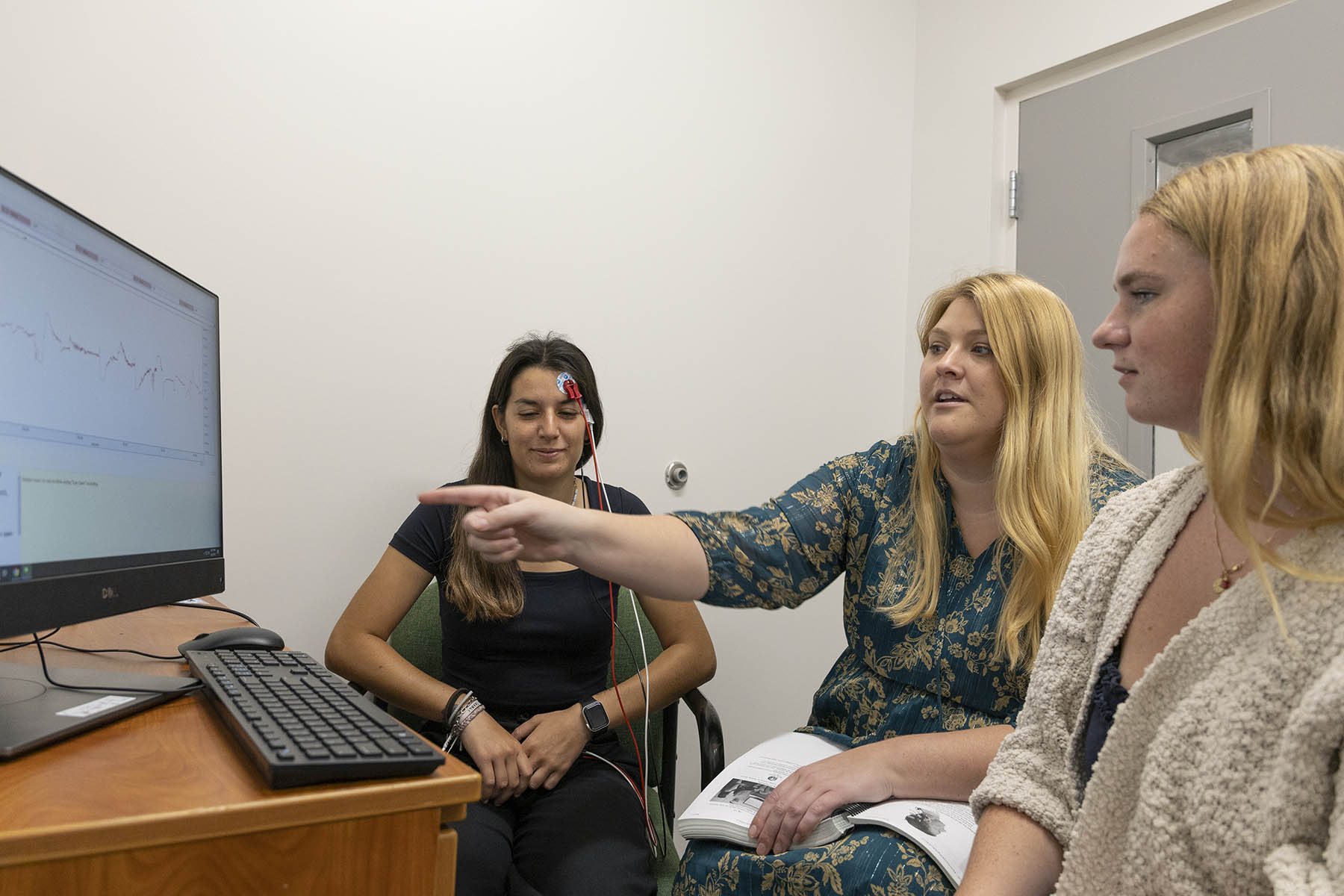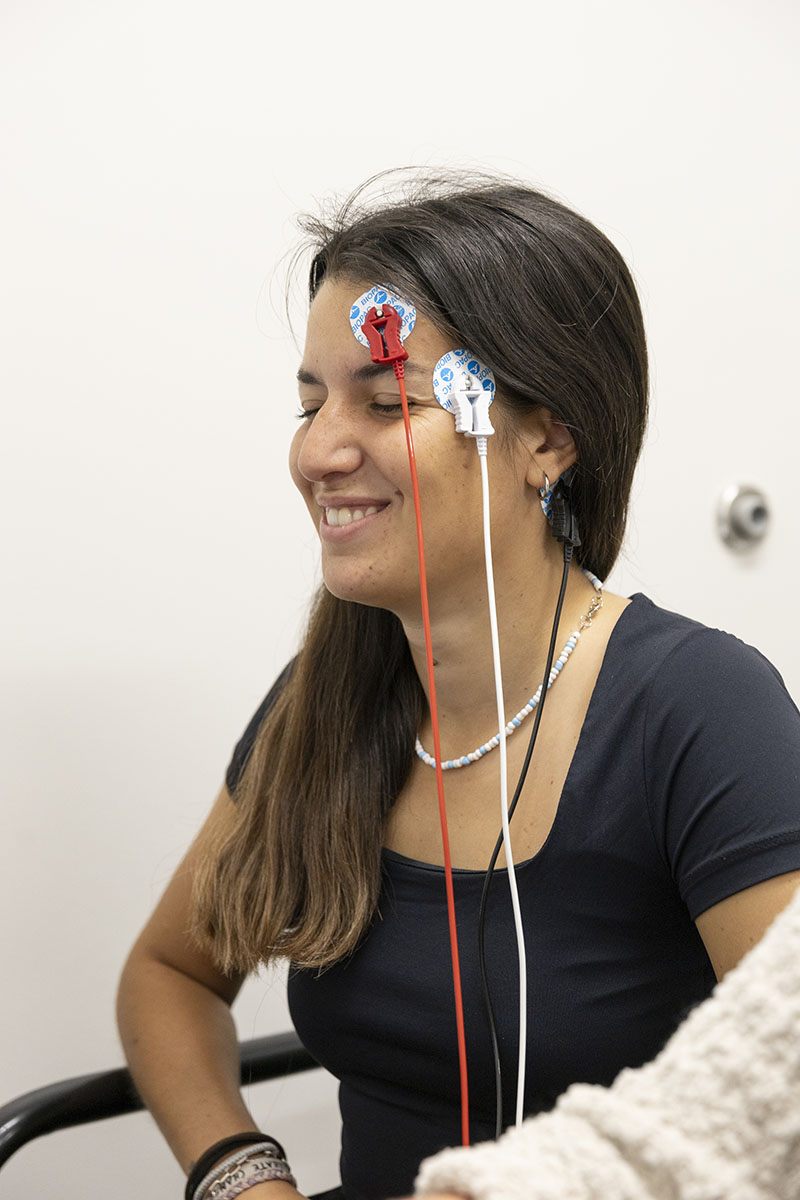Eckerd College senior Haven Henry watched what Alzheimer’s did to her grandfather and then learned, just as she began her first year at Eckerd, that her aunt had been diagnosed with an early onset case of the same disease.
That grave illness propelled the Gross Point, Michigan, native from majoring in marine science to searching for answers in biology and psychology courses, with the hopes of pursuing a Ph.D. in neuroscience after graduation. That serendipity—and a little negotiation with the registrar—will make Haven the first Eckerd student to graduate with a minor in behavioral neuroscience this May.
“The mix of the fields is truly what I love [along with] really diving deeper into how the brain works—not just behaviorally … but also inside your brain—what actually is happening and what neurons are firing and why,” Haven explains.
Assistant Professor of Psychology Katherine Dyer, Ph.D., whose area of expertise is biopsychology, had discovered the need for a new minor while consulting with her colleagues about their mentees’ areas of research interest. She teamed up with a health psychologist, two neuroscientists and an endocrinologist to build the minor.
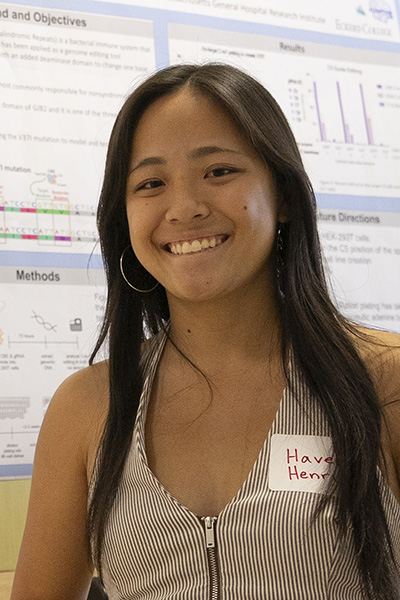
Haven Henry ’25
“We started meeting to talk about these overlapping interests, and we realized that there is student interest in this area of this intersection of these two kinds of fields,” Dyer says. “We thought this is a really interdisciplinary process, and so it’d be really nice to give students access to an interdisciplinary education related to this topic.”
Like Haven, other students were majoring in psychology or biology but taking a number of courses in both areas.
“By having a specific academic program that says, ‘If you’re interested in behavioral neuroscience, we’re giving students access to the correct education that they need to then pursue behavioral neuroscience–related careers,’” Dyer explains.
To qualify for the minor, students must take “Biopsychology” and “Genetics and Molecular Biology,” and then they’ll select two relevant psychology courses from a preapproved list that includes Human Cognition, Sensation and Perception, Health Psychology, and Drugs and Behavior (or a suitable replacement for one of those psychology courses)—in addition to two relevant biology courses from a preapproved list that includes Endocrinology, Neuroscience, Cases in Neuropathology, and Developmental Biology (or a suitable replacement for one of those biology courses).
Minors aren’t declared until the senior year, but Dyer hopes that faculty mentors who spot students with passion in that direction will push them to pursue a minor in behavioral neuroscience.
“What’s so great about Eckerd is that the small community means that it’s very easy to connect people with the professors that they need to be connected with,” Dyer says. “By talking to the students one-on-one and mentoring them and kind of getting a sense of what their interests are, we can point them in the direction of the minor early and make sure that they’re accomplishing the various requirements of the minor.”
When the additional program was announced in January, Haven knew she wanted it to help her go directly into a Ph.D. program without having to earn a master’s degree in between. The Psi Chi International Honor Society in Psychology and TriBeta Biological Honor Society inductee was thrilled when the Eckerd registrar said a human development course she’d taken while studying abroad in Germany and Spain in Spring 2024 would count toward the psychology requirements of the minor.
Her college career has been research heavy, beginning with joining the lab of Associate Professor of Biology Denise Flaherty, Ph.D., who conducts Alzheimer’s studies with C. elegans. Haven also will present her own research, on how substituting epilepsy drugs impacts autism diagnoses in zebrafish, at the Cognitive Neuroscience Society Annual Meeting in Boston March 29–April 1. Her interests pivoted from the neurodegenerative to the neurodevelopmental when she worked with autistic children and adults at summer camps in Maine and Colorado. Currently, she interns at Johns Hopkins All Children’s Hospital in psychometry—scoring cognitive tests for children to determine autism diagnoses and the need for accommodations.
“I feel like that kind of amplified my love for understanding what is autism,” Haven says. “How do you help people with autism? How do you spread awareness?”
“Working at that summer camp [in Colorado] really opened my eyes to how it [autism] presents itself differently in every single individual. And that was just truly amazing. So actually being able to do research on something that could help the population is monumental to me.”
She has applied to postbaccalaureate research programs at major neuroscience programs and likes her odds now that she’s boasting a new connective minor.
“I’m definitely glad that it happened,” she says, “because it’ll help me monumentally in the future getting into the programs I want specifically in the neuroscience field.”





